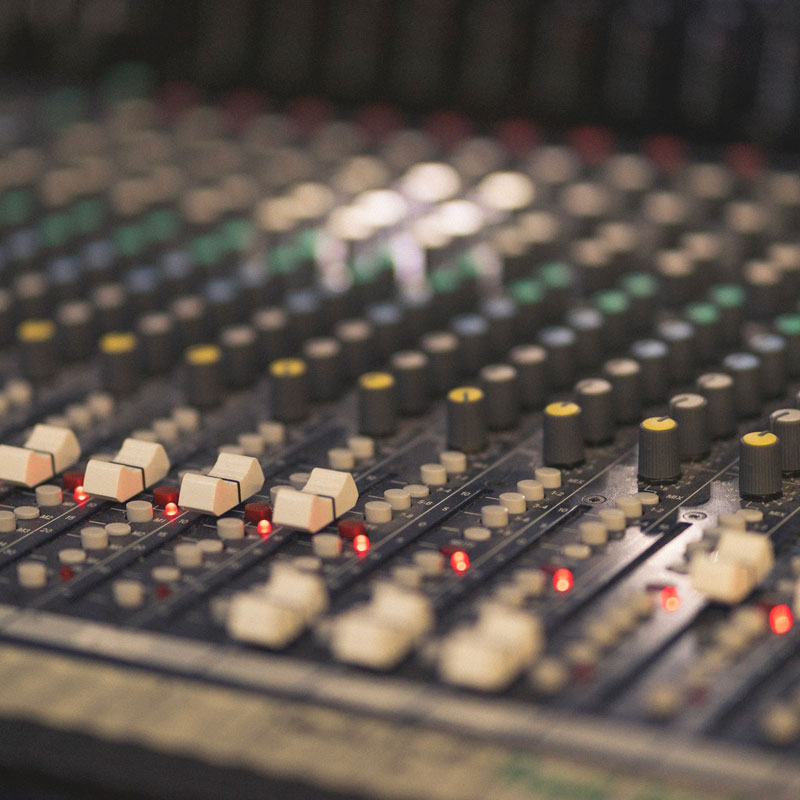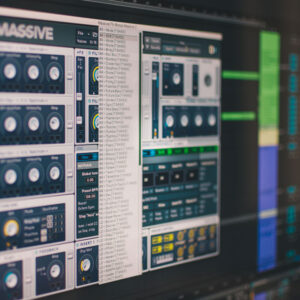Hey there!
David 7 Skies here with a new (hopefully helpful) blog post.
One of the things I get asked the most via email, YouTube, and various social media is how to improve mixing skills, how do I mix this how do I mix that.
And this is such a hard answer to give cause mixing is so subjective and so tied up to the specifics of the track that is being mixed that it’s very hard to provide a general answer.
Yes, there are the classics “cut the low frequencies where you don’t need them”, “Kick should be the loudest element, especially in a dance record” and “try to fill the gaps” but other than that, it all comes down to experience and most importantly, Taste!
If you follow me on Instagram (http://instagram.com/7skies) you may have seen that a few weeks ago I was beyond indecisive on a brand new pair of speakers I had just bought, finally decided to put the Eggs to retirement and upgrade with a brand new pair of Barefoots Footprints 01.
For many reasons, these speakers didn’t cut it for me so I returned them, switched back to the eggs and upgraded to Genelec 8351 the week after (I will probably do a detailed video about this whole speakers thing on YouTube).
Now, besides the fact that speakers are a MASSIVE factor when it comes to mixing, all this switching from monitor to monitor, made me realize a critical thing, that has always been in front of my eyes (or ears) but never really paid too much attention to.
I realized that when it comes to mixing your music, the biggest problem one can face is not whether or not there is too much bass or too many highs and all of that, the real problem, it’s actually YOU and your ability to admit that there is a specific problem and that something just doesn’t work!
Let me explain a little better.
During this speaker switch I was mixing my new track with Tiesto, and while doing this, I could hear that the song had punch and had a nice sub, highs were good too.
However, when compared to other songs I was using as reference, it lacked warmth and the mids / low-mids where nowhere near as good as the references I was listening.
And I could totally hear it and I knew exactly what had to be fixed and how, but god knows why, I could not wrap my head around that, and I’ve literally tried every possible walk around so that I wouldn’t have to open an eq and boost the frequencies that I needed to boost.
I made the bass louder, that just made the song boomier, put the kick louder, that only overshadowed all the elements, made the lead louder, that just took away the punch.
But once again, what’s funny is that I KNEW that all I had to do was to boost a few frequencies in the lead and bass and everything would have been fixed.
So why did it take me so long to do it?
I’m going to be honest with you; I don’t know for sure.
But there might a psychological explanation for it; I read a few articles which prove that humans tend to stick to their decisions and justify them no matter how wrong they might be, this goes with everything, a T-shirt we buy, a dish we order and any other choice we make.
In this case, it was a mixing choice, and no matter how much I KNEW I was in the wrong, I would not budge, so perhaps this particular human behavior is what’s actually causing this problem.
The only reason I finally won this “battle against myself” was because, given the size of the collaboration, this song had to be beyond perfect, and thank god for Tiesto’s feedback, who constantly pointed out that something around that frequency area was in fact wrong.
Changing the speakers simply enhanced the problem and made it so obvious to a point where it was just silly to keep pretending that I was right.
So here it is, a mixing advice that you will hardly find in blogs, YouTube videos, books and such when it comes to mixing, turns out, YOU and your stubbornness can be your worse enemy.
As producers who are also forced to be mixing engineers, we get emotionally attached to some aspects of the song that we DO NOT want to sacrifice, we also get emotionally attached to the way our song sounds no matter if it’s good or bad, we listen to is so many times that in our head that’s just the way the song is.
And that, my friend, is a real pain in the butt to deal with.
When it’s time to lower that sound that you love so much, but really doesn’t go along with a more critical element of the song, when it’s time to cut or boost that obviously harsh or dull frequency, but doing so just sounds weird cause you are not used to it, YOU are the person who has to admit something is wrong and fix it.
This, to me, is the hardest part when mixing your own music.
So how do you fix it?
Well, the cheapest option is getting your head out of your ass, be realistic, admit that you made a mistake, and fix that problem, not by walking around it, but by actually fix the damn problem.
Getting feedback from friends is another great help and once again, being able to take criticism is key here (I used to suck at this, still do kinda).
Taking a break for a few days and approach the mix with a fresh pair of ears might help as well.
Alternatively, you can get your track professionally mixed by somebody else, this way you won’t just get more experienced hands on your record, but you will also get someone who’s less emotionally attached to the song that has to be mixed.
And about that, I’m pleased to announce that I will soon start a mixing / mastering service here on standalone-music.com (hence the new speakers…) More info soon, but trust me, it’s some exciting stuff ;)
So in conclusion, of course having a good set of monitors, having mixing knowledge and using the right tools on the proper occasions, is essential to get good mixing results.
But all of this becomes useless if you are not willing to fix what has to be fixed just because you are too proud to do so.
So learn how to be objective and admit when you are wrong, and I promise you, this will improve your mixing skills by an incredible amount.
As always, I hope this email was helpful, thank you for your time and happy mixing!
Best
David | 7 SKIES



